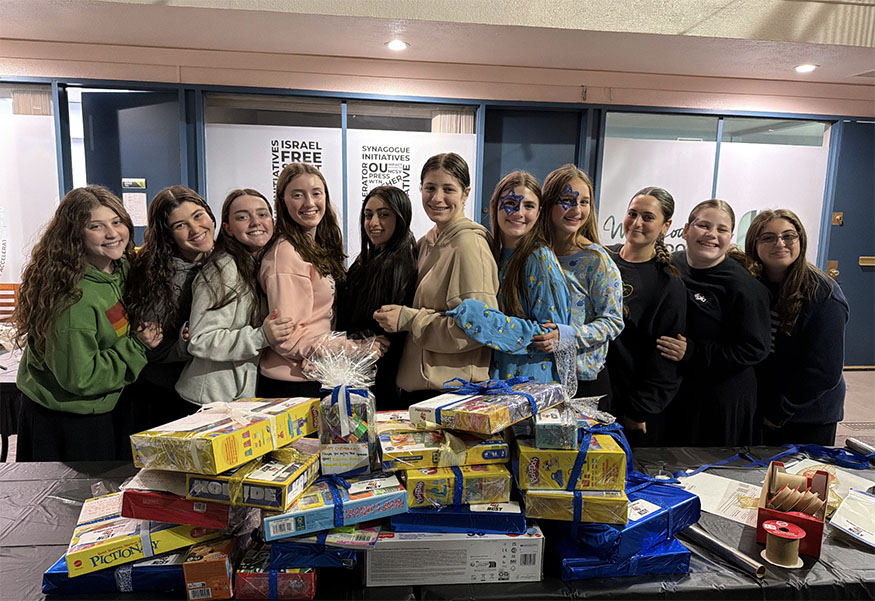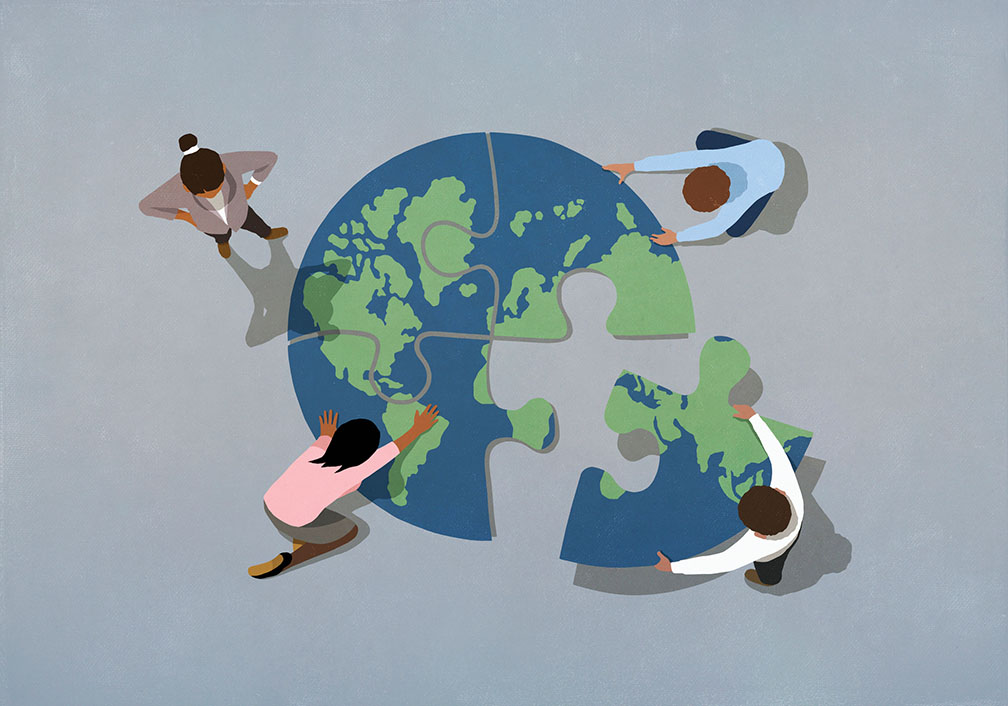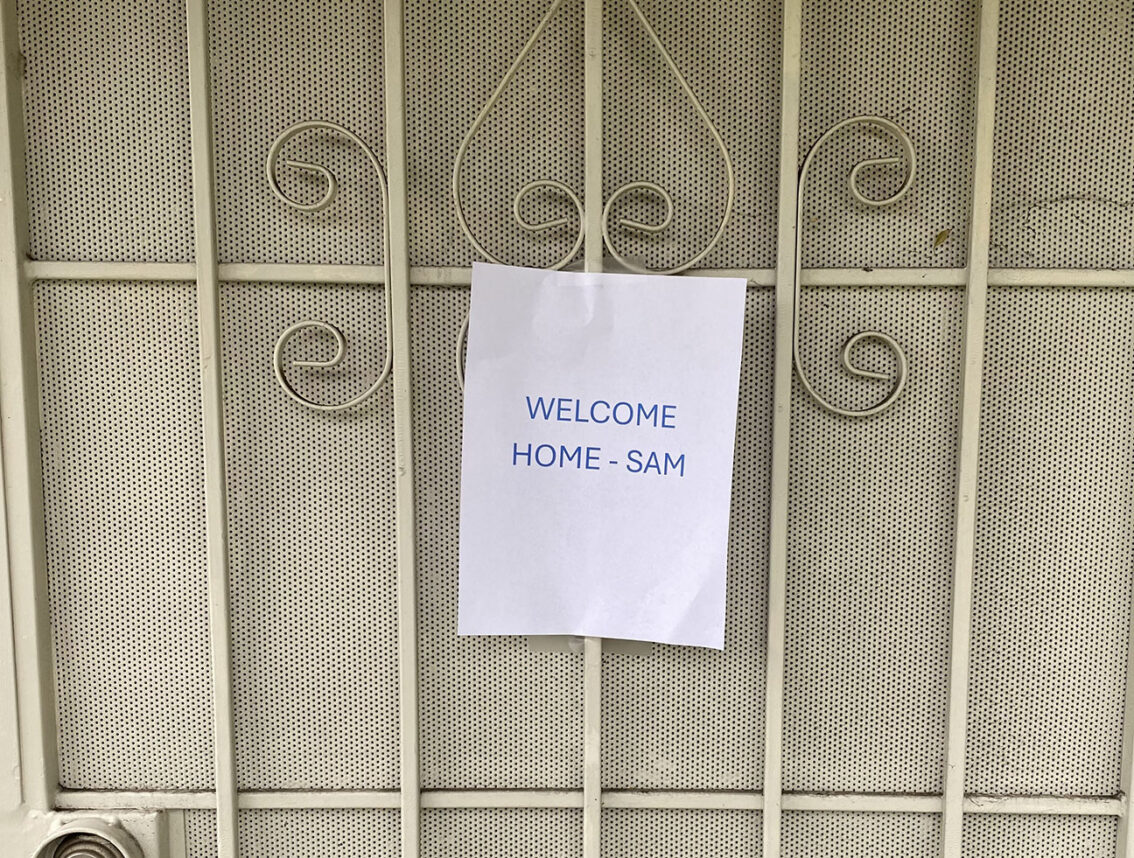
A funny thing happened on the way to Whole Foods.
Or should I say, a funny thing happened in the parking lot at the West L.A. Whole Foods while I was on my way to return Amazon packages.
Previously, this particular Whole Foods branch had designated a counter inside the store and, more importantly, a human being, to help customers with their Amazon returns. In hindsight, I now realize that we customers were spoiled by this human-to-human exchange.
I should have known something was awry when I entered the store and noticed a long line of visibly disgruntled people in the parking lot. Some were juggling multiple packages, others were begging their toddlers for five more minutes of waiting patiently in line, and some grimaced as though they would rather have had a lobotomy than wait in such a humid, smog-filled environment. In its defense, Whole Foods tried to make things more comfortable by setting up a giant floor fan near the line, but it only blew more hot air into faces that were already red with anger.
As I continued to walk and juggle my packages, I noticed that most of the grimaces were directed at a narrow machine. I walked a few feet closer, and to my horror, there it was: an automated Amazon returns kiosk, in all its terrible, efficient glory.
I had an immediate, visceral reaction — my heart sank to my feet. And that reaction alone should tell readers something about what happened next, and the price we often pay when we replace humans with machines.
The couple at the front of the line spoke to each other in another language (I couldn’t hear them well), then tried to return their packages using the automated system. I felt a lump in my throat when I saw the woman choose the unhappy face icon when the screen asked how she rated her experience. That icon matched the faces of everyone ahead of me, and everyone behind me.
One woman had an oversized package that wouldn’t fit in the latch door of the kiosk. She entered the store and spoke with a Whole Foods representative, then yelled, “Please, this is ridiculous! Today is my last day to return this!”
An elderly woman in front of me took her turn, but didn’t know what to do when the machine prompted her to place her item in a plastic bag. A few bags were hanging from the kiosk, but they couldn’t be removed. Two other women behind me tried to help her yank out a bag, to no avail.
The three of them looked like a plastic bag search team. I walked inside for help, only to be told by a representative that the machine that had asked us to use a bag didn’t require any bags.
When it was my turn, I fumbled with my phone because the kiosk camera couldn’t read my return QR codes. I looked at the long line of weary faces behind me and worried I looked inept; I hadn’t felt so rushed since I was in high school and, during a heat wave, my mother sent me to buy a watermelon right before Shabbat began.
I struggled to force the camera to read QR codes for three separate return items. For the last one, I hurriedly placed a sticky return label over a hole in the bag the item came in, only to realize the tear was still there. I felt another lump in my throat as I panicked that the package would fall out in transit and I wouldn’t receive my money back. I looked behind me and swore I could feel the piercing rage of 20 angry eyes.
I felt terrible holding up everyone in line, and in truth, I don’t often force others to wait when I’m dealing with a cashier. I’ll admit that when it’s the two of us (me and a cashier), I’m less stressed because there’s always someone else whom irate customers behind me can blame for slowing things down. But that day outside Whole Foods, it was me versus a machine. And flesh-and-bone, inefficient human that I am, I believe I lost.
My experience taught me that when left to fend for themselves using an automated kiosk, customers were slower, confused and less efficient.
How ironic that the decision-makers at Amazon thought the returns process could be more efficient if a human was replaced by a machine. My experience taught me that when left to fend for themselves using an automated kiosk, customers were slower, confused and less efficient.
Granted, not everyone seemed to loathe the machine as much as those who stood in line with me; some people seemed to have a perfectly easy user experience. I should note that most of those satisfied customers were young, bearded tech-bros in their 20s, who didn’t have fidgety children standing next to them.
The Whole Foods anecdote raises an important question: What are we losing for the sake of efficiency? And how soon before we stop being shocked or dissatisfied, and instead, become inured by the soulless normalization of machines, machines everywhere?
I anticipate that by the time my young children are adults, cashiers will be quaint and antiquated, like the milkmen who used to deliver products to homes or the gas station attendants of yore. I can almost hear my wide-eyed future grandchildren ask me, “Grandma, were there really human cashiers and conveyor belts when you were alive?” To which I’ll respond, “Yes, children. And drones didn’t simply drop off your eggs or cantaloupe from ten feet above.”
Each time I contemplate setting up an Amazon account for my parents, I remember that they belong to a different generation that only experienced human-to-human interaction; that English isn’t their first language; and that my mother still uses a flip-phone. I can’t even imagine how someone like my cute, little mother would try to use a kiosk at Whole Foods; she still fondly recalls the old rotary phones back in 1980s Iran.
But it’s amazing how, when placed in front of a machine, people will cling to the better angels of their human nature. I loved how so many of us worked together that day to help each other use the automated kiosk. We listened to others’ anger and frustration, thereby sharing in very real, human moments together.
In hindsight, I realize that people weren’t angry with me for taking a few extra seconds to return my packages that day; they were irritated because they no longer had access to a human being and a two-way, human exchange. For many of us, such a thing is not only more familiar; it’s more reliable.
Last week, I returned to Whole Foods, confident that I’d have an easier time with the machine because this was the new normal, and I’d have to adapt quickly. And it was precisely that thought that both comforted me, but also made me a little sad.
To my delight, there was a sign on the kiosk: “Machine out of order. Please see cashier inside.” With a large grin on my face, I stood in line inside and when it was my turn to return my items, I looked the cashier in the eyes, smiled and said in earnest, “You don’t know how happy I am to see you.”
Tabby Refael is an award-winning writer, speaker and civic-action activist. Follow her on X and Instagram @TabbyRefael


































